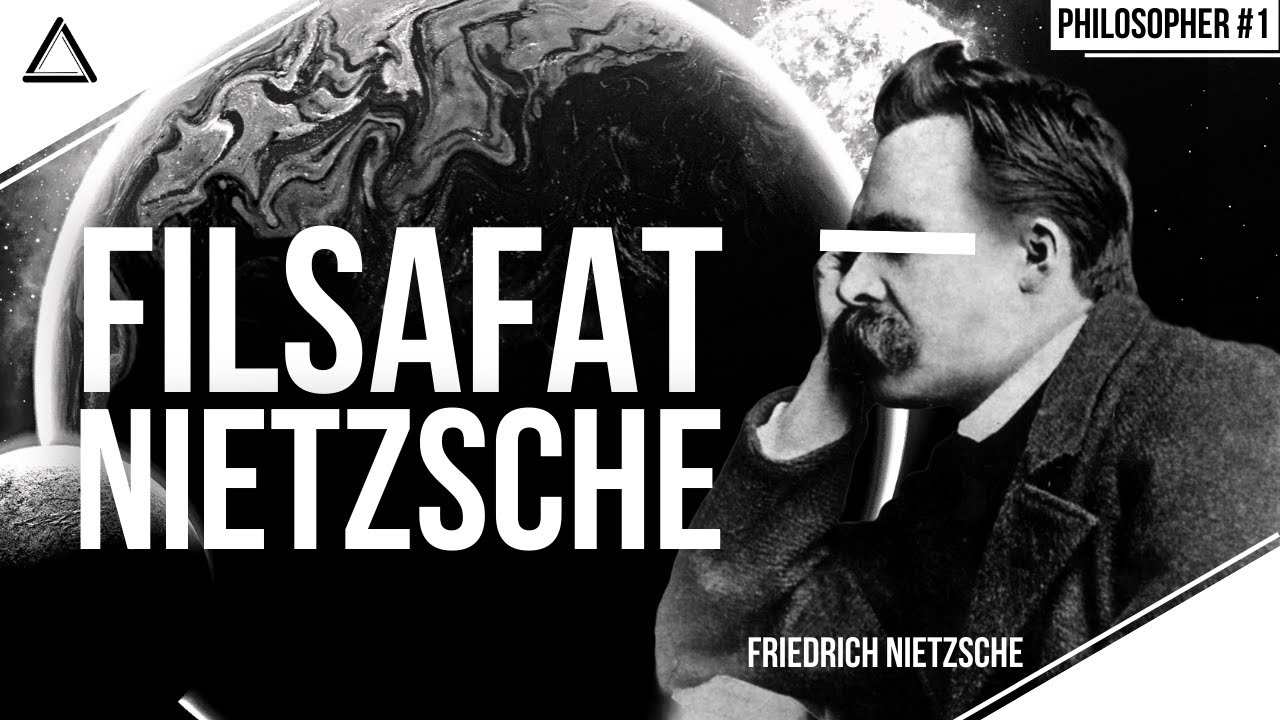How To Find Your Real Self - Friedrich Nietzsche (Existentialism)
Summary
TLDRThis video script delves into Friedrich Nietzsche's philosophy to guide individuals on their journey of self-discovery. It emphasizes the importance of resisting herd mentality, embracing self-discovery's challenges, finding personal meaning in life, and establishing one's own values. Nietzsche's teachings inspire viewers to break free from societal norms, face their fears, and live a life of authenticity and purpose.
Takeaways
- ❓ Finding meaning in life is a fundamental question that drives human creativity, philosophy, and self-discovery.
- 📚 Friedrich Nietzsche, a precursor of existentialism, offers deep insights into human psychology and individuality.
- 🚶♂️ 1. Don't follow the herd mentality: Reject societal norms and values imposed by others to preserve your individuality.
- 💪 2. Embrace the difficulty of self-discovery: Face life's challenges and sufferings as they contribute to spiritual growth and self-ownership.
- 🎨 3. Say yes to what gives you meaning: Find meaning through philosophy, art, or creating your own values without relying on external influences.
- 💖 Amor Fati: Love your fate and embrace all aspects of your life, including failures, as they shape who you are.
- 🔍 4. Find your true values: Evaluate and create your own values to lift the metaphorical 'Greatest Weight' and live a meaningful life.
- 🔓 Break free from societal and self-imposed limitations: Challenge and change the beliefs and relationships that restrict your freedom to be yourself.
- 🧠 Nietzsche's philosophy encourages deep self-analysis and confronting personal demons to understand and rise above them.
- 🌟 Achieving self-ownership requires unique paths and sacrifices, leading to a richer inner nature and a fulfilled life.
Q & A
What is the main theme of the video script discussing?
-The main theme of the video script is the exploration of self-discovery and finding meaning in life through the philosophy of Friedrich Nietzsche.
Why is Friedrich Nietzsche considered a precursor of existentialism?
-Friedrich Nietzsche is considered a precursor of existentialism due to his unconventional ideas about morality and religion, which delve into the true nature of human psychology and the individual's responsibility for shaping their future.
What does Nietzsche suggest as the first step in finding oneself according to the script?
-The first step Nietzsche suggests is not to follow the herd mentality, as it limits individuality and creativity, and to question the societal and moral codes imposed on individuals.
How does Nietzsche view the societal and moral codes that are imposed on individuals?
-Nietzsche views these codes as constructs created by individuals for societal control over human behavior, which can lead to a restrictive 'herd mentality' and suppress individualism.
What does the term 'herd mentality' refer to in the context of Nietzsche's philosophy?
-In the context of Nietzsche's philosophy, 'herd mentality' refers to the tendency of people to conform and seek sameness and comfort, which can stifle creativity and individual expression.
What is the significance of embracing the difficulty of self-discovery according to Nietzsche?
-Embracing the difficulty of self-discovery is significant because it allows for spiritual growth and the development of a distinct strength of character, which is essential for true self-ownership.
How does Nietzsche define the 'Übermensch' and what role does this concept play in finding meaning?
-The 'Übermensch' is a superhuman who creates their own meaning and values without reference to outside influences. This concept plays a role in finding meaning by overcoming the problem of life's purpose through self-invention and full responsibility.
What does Nietzsche mean by 'Amor Fati' and how does it relate to finding meaning in life?
-'Amor Fati' means the love of fate, and it relates to finding meaning in life by accepting and embracing everything that has happened in one's life, including the good, the bad, and the ugly, as contributing to one's current self.
What is the 'Greatest Weight' metaphor introduced by Nietzsche, and what does it symbolize?
-The 'Greatest Weight' is a metaphorical situation that represents the feeling of being crushed into repeating past mistakes due to unevaluated values adopted from the herd. It symbolizes the burden of living a life not aligned with one's true values.
How does Nietzsche propose we find our true values and lift 'the Greatest Weight'?
-Nietzsche proposes that we find our true values by reevaluating the morals imposed on us by society, creating our own values, and ensuring that our actions are worth repeating eternally, which signifies full individuation and the ability to lift 'the Greatest Weight'.
What is the final step suggested by the script to break free from societal constraints and find personal meaning?
-The final step suggested is to have the courage to break the chains of tradition, religion, and societal expectations, and to distance oneself from people or situations that limit one's freedom to be authentic.
Outlines

Cette section est réservée aux utilisateurs payants. Améliorez votre compte pour accéder à cette section.
Améliorer maintenantMindmap

Cette section est réservée aux utilisateurs payants. Améliorez votre compte pour accéder à cette section.
Améliorer maintenantKeywords

Cette section est réservée aux utilisateurs payants. Améliorez votre compte pour accéder à cette section.
Améliorer maintenantHighlights

Cette section est réservée aux utilisateurs payants. Améliorez votre compte pour accéder à cette section.
Améliorer maintenantTranscripts

Cette section est réservée aux utilisateurs payants. Améliorez votre compte pour accéder à cette section.
Améliorer maintenantVoir Plus de Vidéos Connexes

Be Strong or Be Nothing: Nietzsche's Brutal Philosophy

Nietzsche Explained - Thus Spoke Zarathustra Summary - How To Read Nietzsche

PHILOSOPHY - Nietzsche

Nietzsche (resumo) | FILOSOFIA

Nietzsche: O Homem que Desvendou o Universo (e enlouqueceu)

Nihilisme Membunuh Nilai Tradisional | Filosofi Friedrich Nietzsche | Philosopher #1
5.0 / 5 (0 votes)
